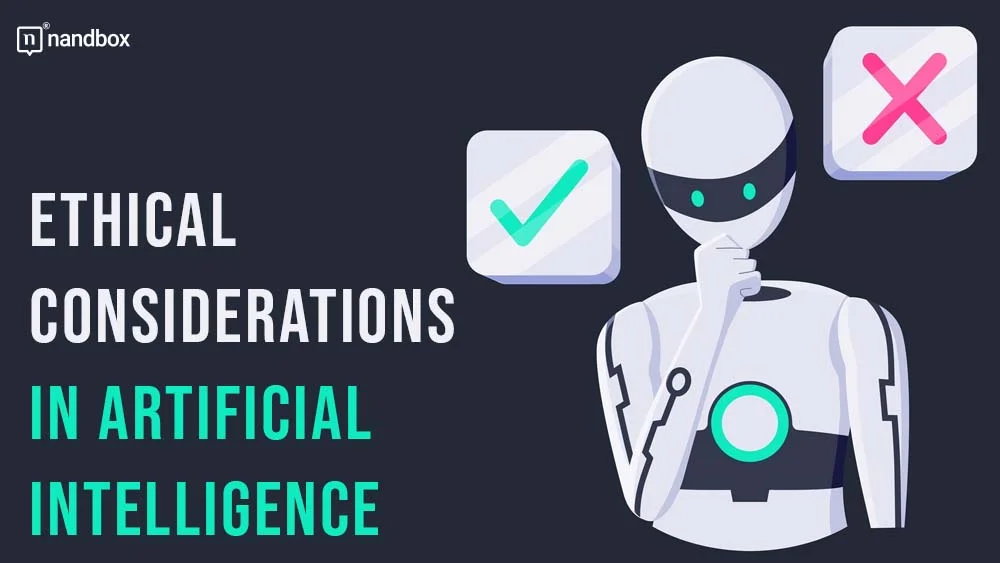Artificial Intelligence (AI) is no longer a concept of the future; it’s a present-day reality reshaping industries and lifestyles. According to 2024 AI statistics, this technology significantly alters our operations and interactions. Experts expect the market for AI to balloon from $20.9 billion to an astounding $148.4 billion by 2029, underscoring its rapid growth. However, this expansion brings about several ethical and operational challenges that they need to address to responsibly harness AI’s full potential. Here are the top eight challenges and ethical considerations in artificial intelligence.
The Top Eight Challenges and Ethical Considerations in Artificial Intelligence
1. Bias and Fairness
One of the most urgent ethical issues in AI is bias. AI systems are trained on data that may reflect historical biases and prejudices, leading to biased outcomes. For example, facial recognition technology receives much criticism for its higher error rates in identifying people of color. Ensuring fairness in AI involves developing algorithms that mitigate bias, using diverse datasets, and continuously monitoring AI systems for discriminatory behavior.
Recently, several U.S. agencies have warned that they plan to tackle bias in AI models and hold organizations responsible for any discrimination their platforms may cause.
2. Privacy and Surveillance
AI’s ability to collect and analyze vast amounts of data raises significant privacy concerns. AI-powered surveillance systems can track individuals’ movements and behaviors, potentially leading to an invasion of privacy. The ethical challenge lies in balancing the benefits of AI-driven security and surveillance with the right to privacy. Transparent policies and stringent regulations are essential to protecting individuals’ privacy rights.
3. Transparency and Explainability
AI algorithms often operate as “black boxes,” making understanding how they arrive at specific decisions difficult. This lack of transparency can lead to ethical issues, especially in critical healthcare and criminal justice applications. Ensuring AI transparency involves developing explainable AI models. These models provide insights into their decision-making processes, enabling users to trust and verify AI outcomes.
AI systems learn from data, and if that data is biased, AI’s decisions will likely reflect those biases. Implementing AI regulations can help ensure that these systems are designed and trained to avoid discrimination, thereby promoting fairness across all sectors.
4. Accountability and Responsibility
Determining accountability in AI systems can be challenging, mainly when AI makes autonomous decisions. If an AI system causes harm, it is crucial to establish who is responsible—the developers, the users, or the AI itself. Creating a framework for accountability involves defining clear roles and responsibilities, implementing robust testing and validation processes, and ensuring that AI systems operate within ethical and legal boundaries. An attorney specializing in AI law can help organizations protect themselves and their customers by building in protocols for auditing the technology and ensuring human oversight.
5. Employment and Economic Impact
AI’s automation capabilities can disrupt job markets, leading to job displacement and economic inequality. While AI can create new job opportunities, it may also render specific skills obsolete. Addressing the ethical implications of AI on employment involves investing in reskilling and upskilling programs, promoting equitable economic growth, and ensuring that the benefits of AI are widely distributed across society.
6. Security and Safety
AI systems can be vulnerable to cyberattacks and malicious use, posing significant security risks. Adversarial attacks, where malicious actors manipulate AI inputs to cause incorrect outputs, highlight the need for robust security measures. Ensuring AI safety involves developing secure AI algorithms, implementing rigorous testing protocols, and establishing guidelines for the responsible use of AI technologies.
7. Ethical Use of Autonomous Weapons
The development of AI-powered autonomous weapons raises profound ethical and moral questions. The potential for using AI in warfare without human intervention poses risks of unintended consequences and loss of human control. Establishing ethical guidelines for developing and using autonomous weapons is essential to prevent misuse and ensure the use of AI technologies for peaceful purposes.
8. Societal and Cultural Impact
AI has the potential to influence societal norms and cultural values, raising concerns about its impact on human relationships and social structures. For instance, AI-driven social media algorithms can shape public opinion and behavior, sometimes leading to polarization and misinformation. Addressing AI’s societal and cultural impact involves fostering inclusive dialogue, promoting ethical AI education, and encouraging diverse perspectives in AI development.
Conclusion
The rapid rise of AI offers both exciting opportunities and significant challenges. It’s crucial to address the ethical concerns and hurdles to ensure we develop and use AI responsibly. This involves focusing on bias, fairness, privacy, transparency, accountability, employment impact, security, autonomous weapons, and societal influence.
We can ensure that AI technologies are developed according to ethical principles and promote the well-being of all individuals. As we continue to innovate and integrate AI into various aspects of our lives, it is imperative to prioritize ethical considerations and create frameworks that safeguard human values.




